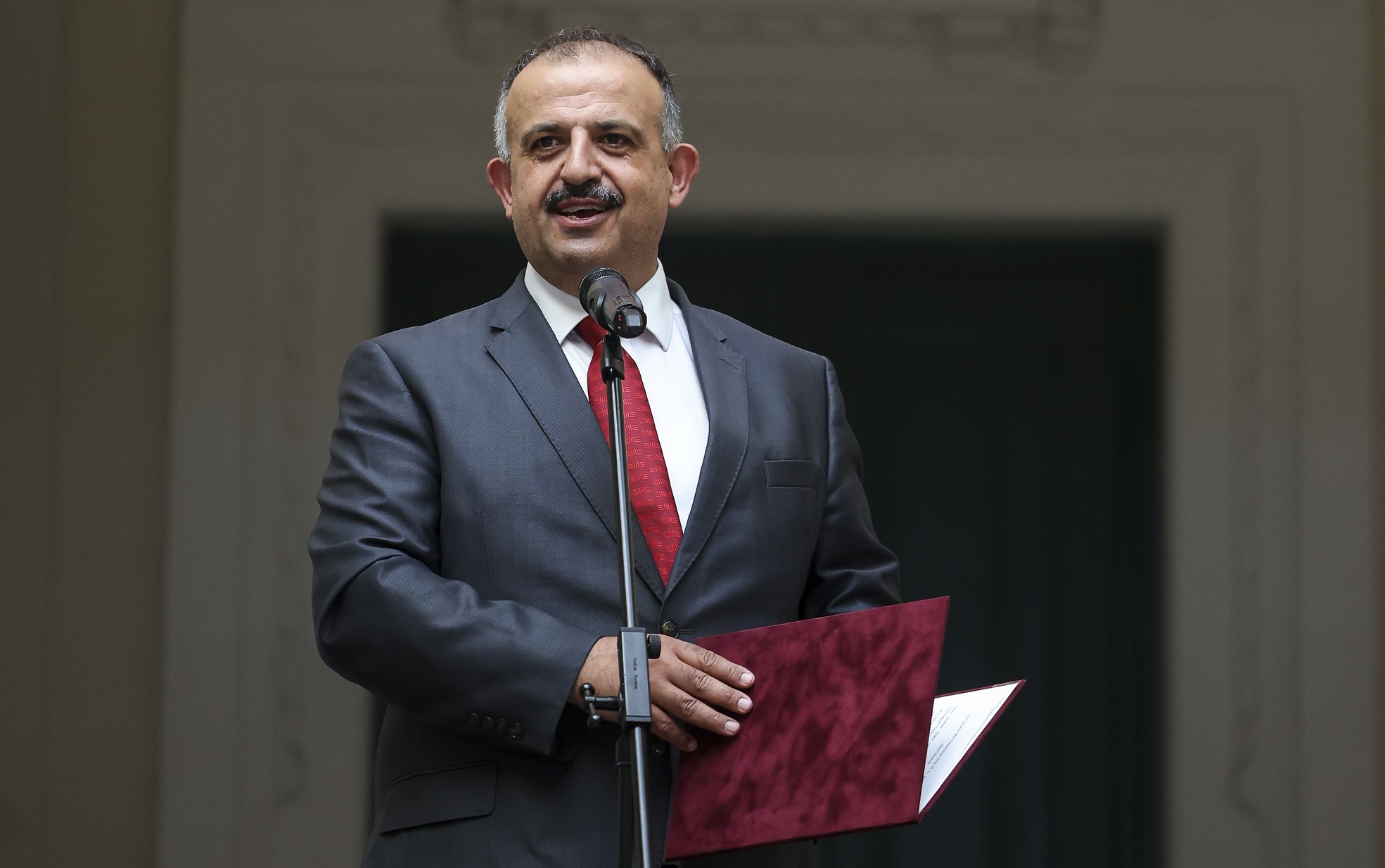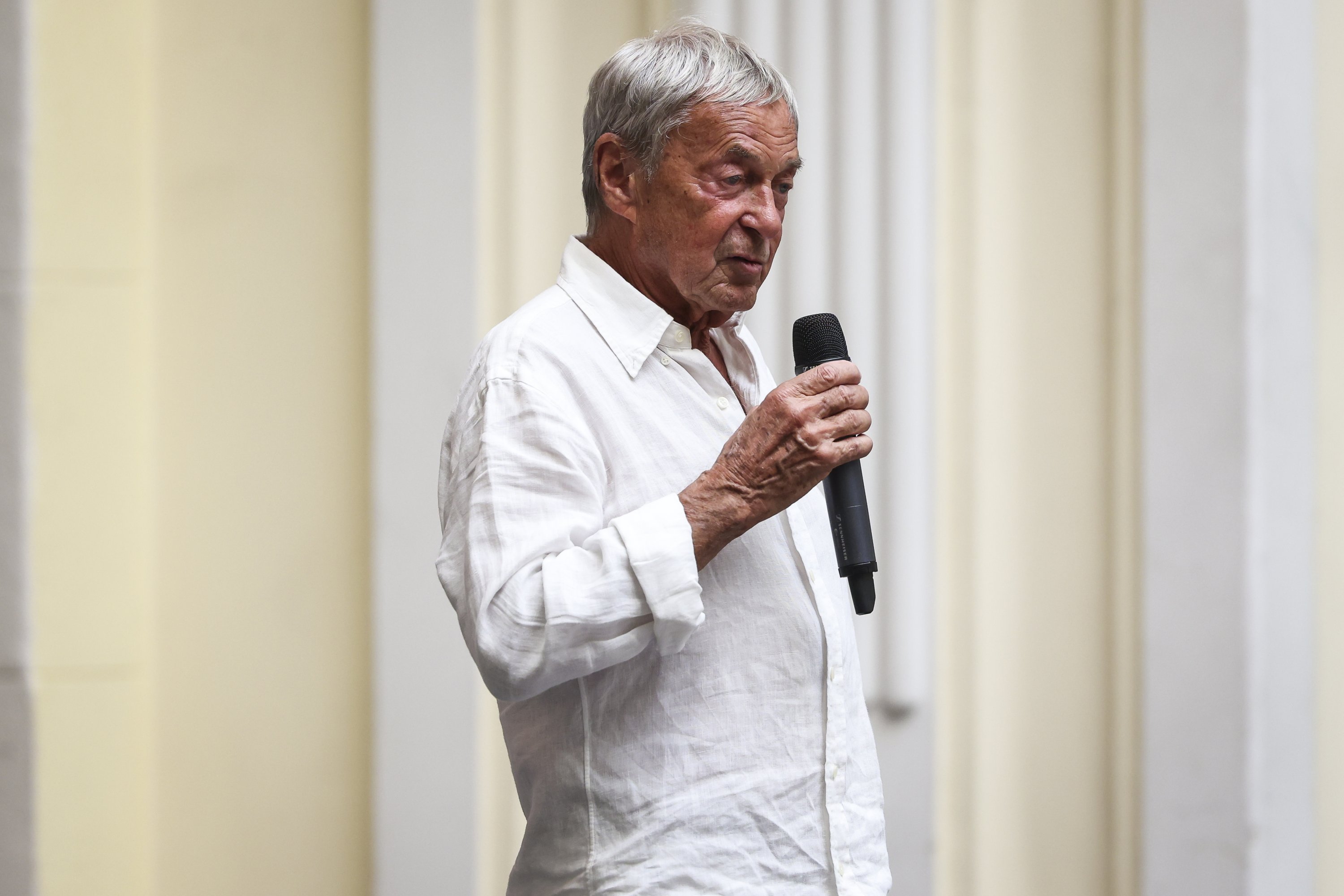The International Young Physicists’ Tournament (IYPT), the most prestigious international physics team competition for secondary school students, kicked off at the University of Technology and Economics (BME) in Budapest. More than 350 participants from 39 countries have arrived in Hungary, with Nobel Prize-winning physicist Ferenc Krausz, Széchenyi Prize-winning physicist László Kiss and Ernő Rubik present as guests.
The IYPT aims to find solutions to open-ended research problems. The English-language team competition not only inspires physics education and research, but also serves to build the future international scientific community.
At the opening ceremony, participants were welcomed by Veronika Varga-Bajusz, State Secretary of the Ministry of Culture and Innovation, Ernő Rubik, Kossuth Prize-winning architect, designer and inventor, Charaf Hassan, Rector of BME and Imre Kacskovics, Dean of ELTE.

Charaf Hassan
Charaf Hassan said that BME also supported the initiative because physics education is traditionally at the heart of the institution’s activities. He recalled the recent news that BME is the 12th best university in the region in the QS European ranking and the best in two indicators in Hungary, and that two of the four Nobel Prize winners at BME – Dénes Gábor and Ferenc Krausz – won the award as physicists. The rector added that it was an exceptional honour to have Ernő Rubik, a graduate of BME, whose cube became a symbol of creativity worldwide in the last 50 years, in attendance at the ceremony.

Rubik Ernő
The competition takes place at ELTE’s Lágymányos campus. “Every year, the Hungarian team is prepared by the staff and students of the ELTE Institute of Physics and Astronomy. It won gold medal in 2017, silver medal in 2021, 2022 and 2023, and bronze medals in 2018 and 2019,” said Mihály Hömöstrei of ELTE, head of the IYPT2024 organising committee.
“Budapest has always been the home of science, creativity and innovation, and with this competition it can now show this to the world,”
said Veronika Varga-Bajusz, State Secretary for Higher Education, Vocational and Adult Education and Youth at the Ministry of Culture and Innovation (KIM). She added that young people can use the international experience and knowledge they gain for the benefit of their careers and their country.
“Young people are the innovators of the future. We need young talented people because they can be the scientists and professionals who will drive the world forward with their innovations. At Bosch, we believe in young people, and we have a number of programmes to support the secondary school age group. We are pleased to support the competition that can be an important step in the professional development of the competitors,” said András Kemler, Regional Head of Facilities Management at the Bosch Group.
Situational awareness, argumentation, teamwork
The IYPT stands out from other student science competitions in that participants present and discuss research problems in the roles of presenter, opponent and referee, rather than paper-based work. In addition to understanding the problems, quick situational awareness, persuasive argumentation, English language skills and teamwork are important. To qualify for the 5-member national team, you must perform well in the national round and then qualify through an intensive preparation period involving several months of experimental and theoretical research and communication training.
One year of preparation
Team members have almost one year to work on the research problems set. The problems, which involve complex physical systems, have no published solutions, and the contestants’ task is to gain a better understanding of the phenomena, find research methods, formulate and test hypotheses, and finally to establish and defend approximate formulas and theoretical interpretations with the widest possible validity.
The competition is organised jointy by ELTE and BME, with the support of the Ministry of Culture and Innovation, the Bosch Group in Hungary, Grundfos, Jane Street and other partners. Further information and the detailed programme are available in English on the website of the competition.

